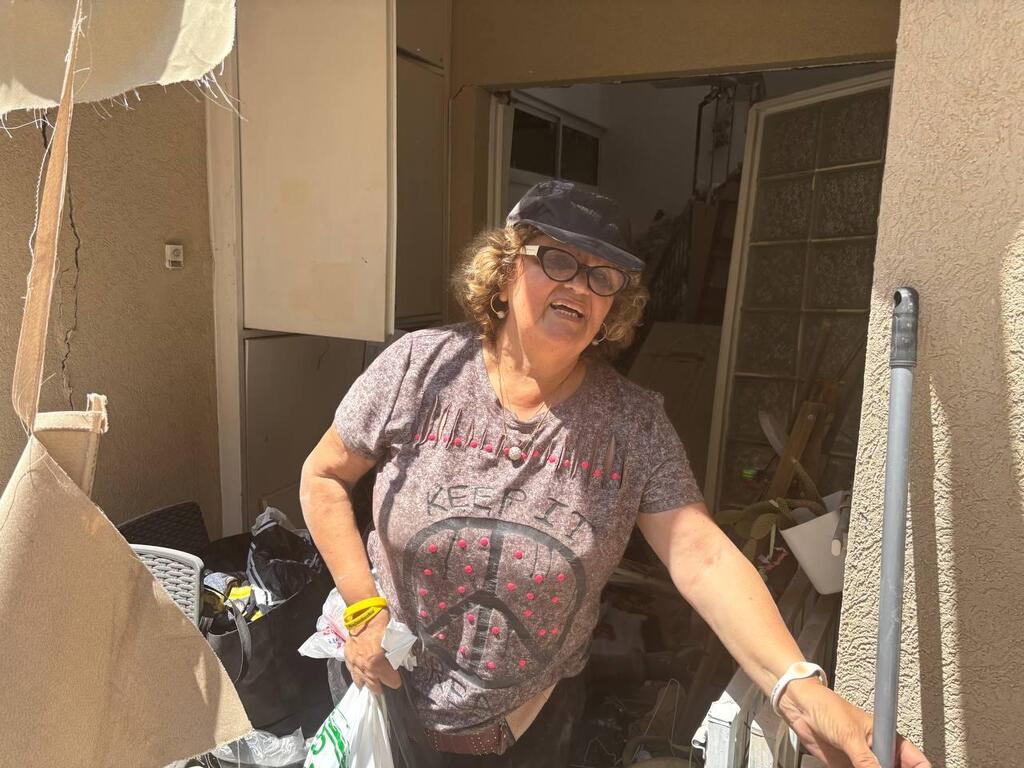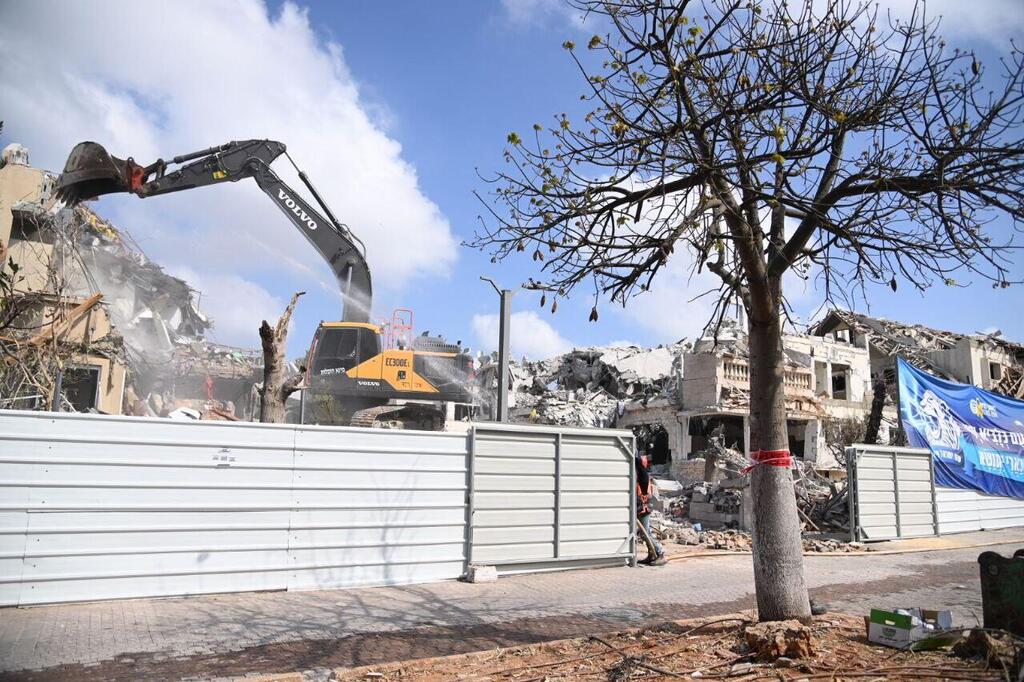It's Monday at 8 a.m. A metallic roar cuts through the air as the heavy bucket of a tractor crashes into the roof of a house in the quiet Neve Yam neighborhood of Rishon LeZion. Former residents stand by, watching in disbelief as their homes are torn down one by one—not by an enemy, but by the State of Israel. The demolition is part of the official clearance of five private houses that were directly hit by an Iranian missile that landed in the city a week and a half ago.
Homes in Rishon Lezion demolished
(Video: Lior Sharon)
One voice that refuses to fade from the scene is that of 67-year-old Liza Yazdi, who stood with her two daughters facing the remains of the house where she raised an entire family. “This is a painful and difficult moment,” she said. “The tractor is destroying 34 years of memories. But I’m grateful to be alive. We’ll build a new home.”
Yazdi, who miraculously survived the impact, described the emotional turmoil of watching the iron claw tear through the walls built by her late husband. “He built it well,” she said through tears. “The walls didn’t want to fall.”
Not far from her stood Sivan Malkiel, 44, watching the demolition of her parents’ home, built by her father, Zion, some 37 years ago “when the area was still all sand.” “It was his life’s project. This is the house of my childhood. We played here, we grew up here. I know everyone on this street, in this neighborhood,” she said. Her parents are currently staying at a hotel, while she tries to manage the overwhelming bureaucracy—rent, renovations, furniture—starting again from scratch. “It’s very difficult,” she admitted. “Rental prices are through the roof.”
2 View gallery


Liza Yazdi trying to grab what she can from her demolished apartment
(Photo: Meir Turgeman)
Pain echoes in the voice of Yedidya Shabtai as well. Along with his wife, daughter, son-in-law and grandchildren, he was rescued from the rubble of their home. “Everything was there—all the memories,” he said, eyes fixed on what was left of the structure as a massive excavator crushed the remaining walls. Even the family dog, Tzvika—initially thought to have died—was found alive four days later under the ruins, a small ray of light in a dark moment.
Get the Ynetnews app on your smartphone: Google Play: https://bit.ly/4eJ37pE | Apple App Store: https://bit.ly/3ZL7iNv
But the grief extends beyond the five homes that were completely destroyed. According to an engineering survey, around 150 private homes suffered varying levels of damage—from shattered windows to serious structural cracks. Another 30–40 homes sustained major damage requiring significant repairs, and some of these are expected to be demolished as well. For now, displaced residents are being housed in hotels, waiting for compensation, decisions and answers.
Despite everything, amid the rubble flows a sense of hope. “We survived,” one resident repeated. “Now we just need the state to truly stand by us—no bureaucracy, no delays. Let us rebuild.”
In the midst of the physical loss and the tremendous challenge of starting over, there is also a flicker of pride and faith. “The state promised compensation. We will rebuild,” said one of the site inspectors.
Barring any unexpected complications, demolition is expected to be completed by the end of the week, after which the residents will receive a clean plot with an approved engineering report—and can begin their next journey: from ruins to a new home.




